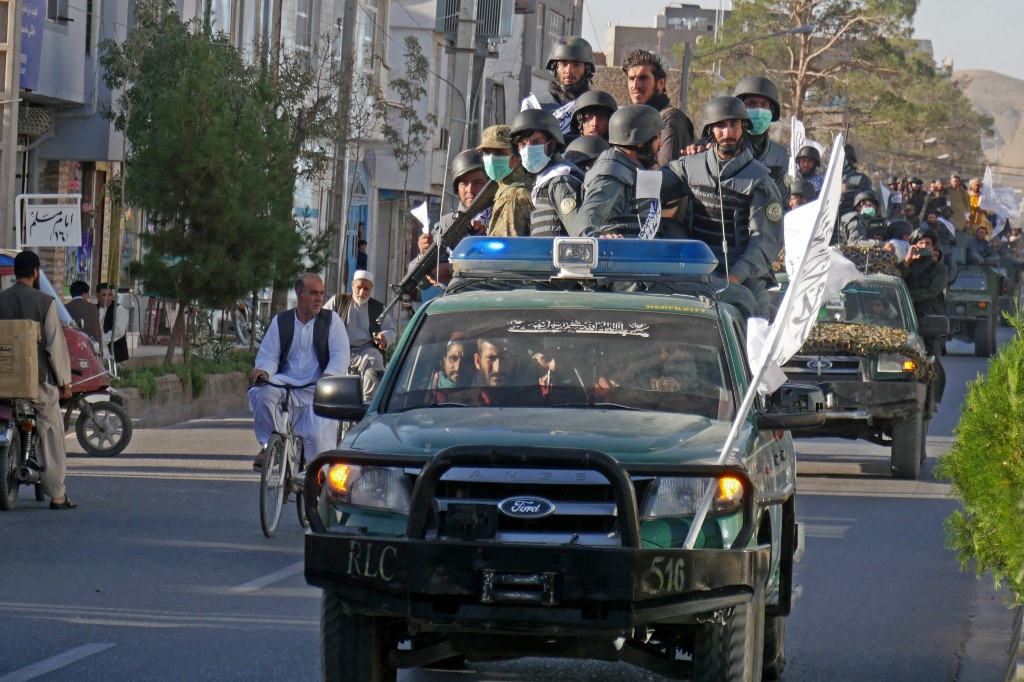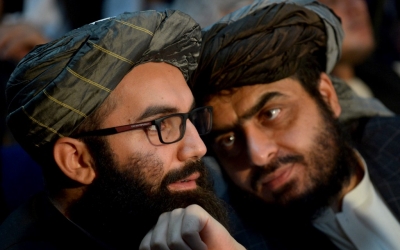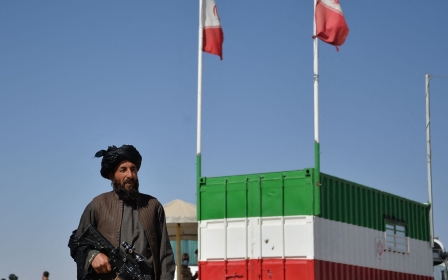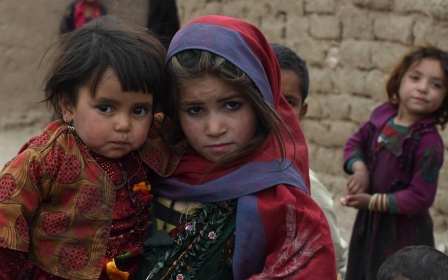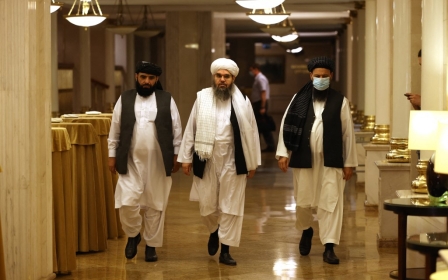Afghanistan: Why Ahmad Shah Massoud still matters to the Middle East
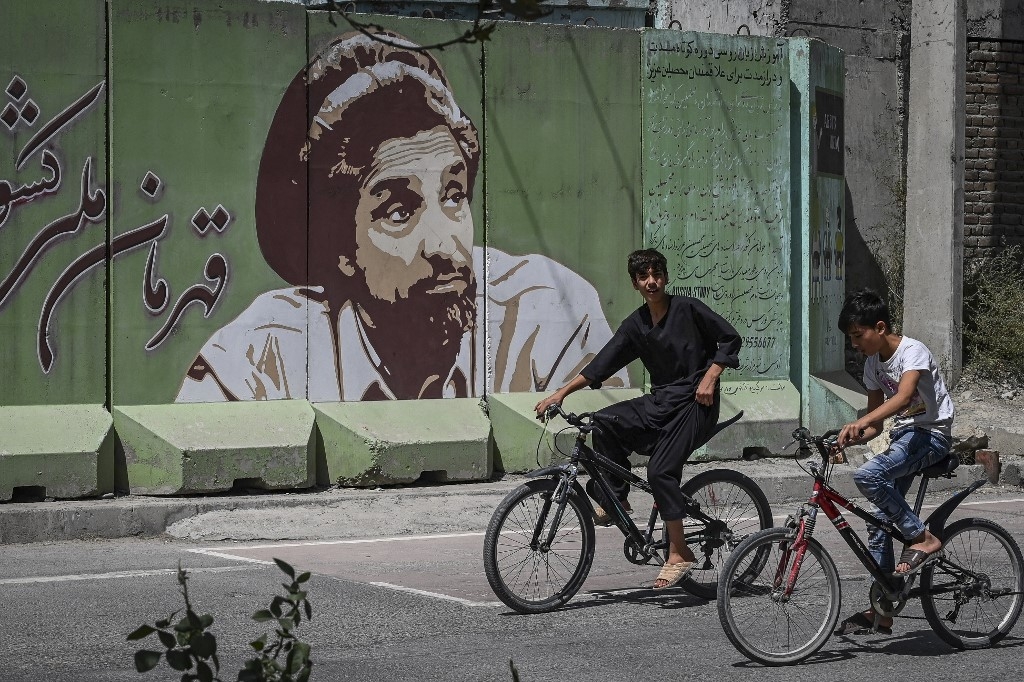
Few individuals would unite Bernard-Henri Levy, Michael Waltz, Qassem Soleimani and Abdullah Azzam like Ahmad Shah Massoud, the subject of their boundless admiration. So what was it about Massoud, the former Afghan military commander, that moved the controversial French philosopher, the first Green Beret in Congress, and the late leaders of the Shia and Sunni resistance movements?
As Afghanistan slips out of the headlines - barring the odd hostage swap, continued Taliban support for al-Qaeda and denial of basic women's rights - there is a sense of deja vu creeping into global affairs. Just as former US Congressman Charlie Wilson warned at the end of the Cold War that ignoring Afghanistan would have global repercussions, today, Waltz is highlighting Massoud's past warnings on Afghanistan.
Many political groups have lessons to learn; whether they will be Massoud's lessons or the Taliban's, only time will tell
Conflicts in Afghanistan resonate across the Middle East, from al-Qaeda affiliates in Syria looking to the Taliban for inspiration, to countries in the Gulf vying for influence in Kabul. Iran has steadily grown its influence as Afghanistan again drifts into a void where Middle Eastern powers can compete with each other's violent proxies. Almost all of today's problems were foretold by Massoud in the mid-1980s.
The recent assassination of former al-Qaeda leader Ayman al-Zawahiri, while only symbolic, reaffirms UN warnings that Afghanistan could again become a key base for terrorist organisations. With the Islamic State further entrenched in northern Afghanistan and as attacks continue across the country, there is renewed concern in Middle Eastern capitals that what begins in Afghanistan may not remain confined to Afghanistan.
This harkens back the historical dispute between Massoud and foreign Arab fighters on how to conduct the war against the Soviets. Today, as the Taliban reel from the repercussions of the two-decade conflict in Afghanistan, there is fresh debate over the right way to carry out a war, and over the growing influence of foreign groups in the country. The Taliban are even echoing Massoud by calling their opponents "kharijites", or defectors.
New MEE newsletter: Jerusalem Dispatch
Sign up to get the latest insights and analysis on Israel-Palestine, alongside Turkey Unpacked and other MEE newsletters
Pivotal moment
After the fall of Kabul, the Palestinian Hamas movement congratulated the Taliban on ending the US occupation. Syrian rebel groups in Idlib also saw it as a pivotal moment for their cause, while a close confidante of Osama Bin Laden has since returned to Afghanistan.
The thread that binds these groups is Abdullah Azzam. He was on the cutting edge of political Islam being brought to life by the barrel of a gun, and is now lionised across parts of the Arab and Muslim world. A brilliant memoir of Azzam's son-in-law, Abdullah Anas, helps to dispel some of the myths that exist to this day, such as that Massoud was part of the same extremist lot that led to the founding of al-Qaeda.
The book discusses how Massoud was in fact opposed to the foreign fighters who brought their own agenda to Afghanistan. Thus began a three-decade war of contestation over political Islam, which eventually led to the triumph of the extremists in the form of the Taliban, but also other groups that took part in the Algerian civil war and the Syrian conflict.
Massoud had for years warned the Americans, Pakistanis, Egyptians and Saudis that if they continued to settle their disputes in Afghanistan, their "warriors" would come back to haunt them - and they did, as a former Saudi intelligence chief testified in his book released in 2021, on the 20th anniversary of both 9/11 and Massoud's assassination.
Battle for influence
Soleimani, who was assassinated by US forces in January 2020, had a close relationship with Massoud and even did some training with him. The special relationship between the two men assisted the Americans in the early days of the post-9/11 "war on terror", when Iran helped the US against the Taliban.
Soleimani's successor, an old hand who has changed Afghanistan's landscape and perhaps even outsmarted Pakistan's decades-long influence, is again turning the country into a battleground, driving Gulf powers back into Afghanistan.
Iran also has its Shia fighters, whom it has been reshuffling from Syria back into Afghanistan. Even before the fall of Kabul, former Iranian Foreign Minister Mohammad Javad Zarif said Iran's foreign fighters could help settle the insecurity in the country. And last summer, foreign fighters once again rushed into Panjshir to help the Taliban fight against forces allied with Massoud's son.
As Arab states jockey for influence in Afghanistan and Iran deepens its foothold in the country, there are fears that the void left by a second superpower pulling out in less than four decades will make Afghanistan a centre for regional rivalries. As the Ukraine war peaks, Moscow could also attempt to use its proximity to Afghanistan to gain further influence.
Massoud fought a lonely war against jihadis, who eventually killed him just two days before 9/11. His warnings were as relevant for Afghanistan as they are for the Middle East today. The ongoing battle in Panjshir that Massoud's son now carries will have repercussions across the region. Many political groups have lessons to learn; whether they will be Massoud's lessons or the Taliban's, only time will tell.
The views expressed in this article belong to the author and do not necessarily reflect the editorial policy of Middle East Eye.
Middle East Eye delivers independent and unrivalled coverage and analysis of the Middle East, North Africa and beyond. To learn more about republishing this content and the associated fees, please fill out this form. More about MEE can be found here.



